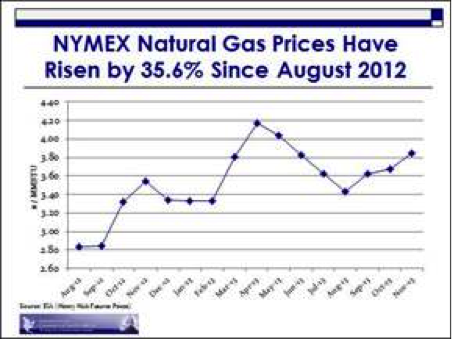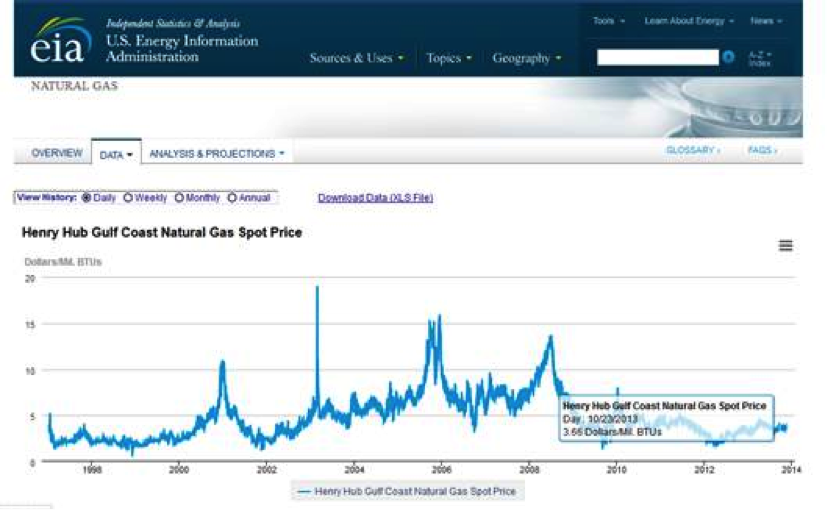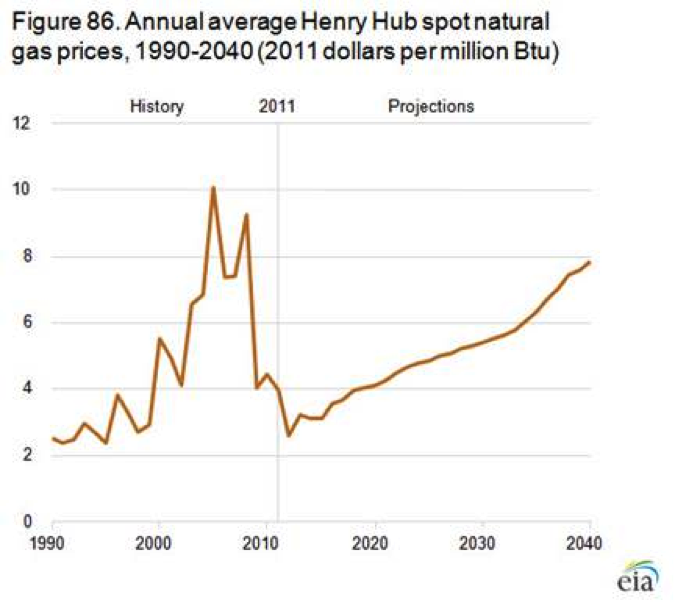The Industrial Energy Consumers of America circulated to Capitol Hill this week a document entitled, “Five LNG Export Facilities; Natural Gas Prices Up 35.6 Percent; Cost of $25.8 billion”. The document contained talking points built on cherry-picked data that is so misleading you have to see it to believe it…
ANTI-LNG MYTH #1: Natural gas prices are on the rise and therefore the department of Energy must delay LNG export applications. Pasted below is ICEA’s graph it uses to justify further delay of LNG export approvals. It looks like gas prices are on the rise… right?
Wrong! Natural gas prices often reflect short-term seasonal and political changes; however, the huge increase in supply in recent years has brought natural gas prices down to the low levels of the early 2000’s as shown in the graph below:
Source: http://www.eia.gov/dnav/ng/hist/rngwhhdd.htm
ANTI-LNG Myth #2: The Department of Energy must redo its study. ICEA writes, “DOE is basing its LNG export decisions on domestic demand assumptions that are now three years old, and do not take into consideration that the EPA GHG rule will restrict use of coal in the power generation sector.” This statement is misleading; according to data from the EIA, even if a large number of coal fired plants are retired, there will be only very small impacts on domestic natural gas prices. EIA also notes that future levels of natural gas prices depend on many factors, including macroeconomic growth rates and expected rates of resource recovery from natural gas wells.” And in the 2013 Annual Energy Outlook, the Department of Energy projected that natural gas prices will not rise above $5.00 until 2030.
Source: Annual Energy Outlook 2013
America has a plentiful supply of natural gas, enabling exports and more than enough supply to fuel our chemical, manufacturing and residential demands. And natural gas reserves are at record levels, surpassing the global leader Russia for the first time ever.
Consequently, there are no circumstances under which the Department of Energy should delay natural gas exports. To do so would be in violation of the World Trade Organization and at-odds with the best economic interests of our country.









